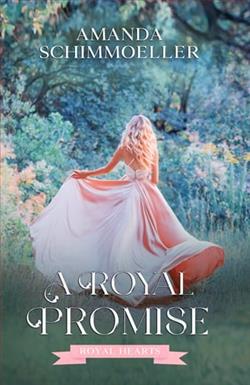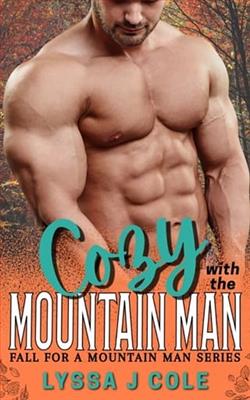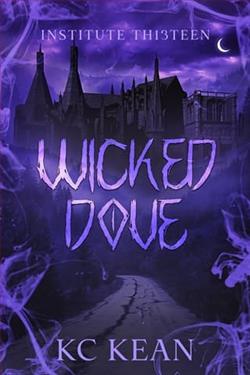Page 58 of A Miracle on Hope Street
‘Talk?’ I say, challenging her as if it’s as simple as all that. ‘Where on earth have you been until now? Dublin? Are you actually going to tell me that you have only been in Dublin, just some miles away all this time.’
‘No, no, not all this time, no,’ she says, her Italian accent sounding more and more familiar now with every word she utters, bridging the gap, no matter how much I fight it, between then and now.
‘Where then?’
My voice is shrill and to the point.
‘I hope I can explain,’ she says, her tears flowing freely now. She dabs her cheeks with a tissue, a quick, hurried tap just like she used to do to me when she’d try and comfort me if I cried in public. ‘I hope you can understand that I never left because I wanted to, Ruth. I didn’t have a choice, you see. It wasn’t always up to me, darling.’
That word again. Darling. I know she means well but it’s hurting my brain when she says it. But she didn’t have a choice? That’s quite a statement to make.
I look across the car park to a pub and then start to walk, letting her follow me as I try and let what is happening digest in my very confused mind. I thought I was coming here to meet a stranger who needed my help, yet in the flick of a switch I’m told that person doesn’t actually exist and that she was never really a stranger after all, yet in the here and now sheisa stranger in so many ways. My head is mangled. I don’t know what to do or say to do the right thing, so I’ll just continue to put one foot in front of the other, go into a dry and warm pub in this beautiful town and hope that it all makes sense very soon.
‘Bernadette, I meanyou. . . ’ I stammer, ‘you told me in your letter that you’d severe mental health problems? Is that true?’
We are seated by the fire as Christmas songs play in the cosy pub and I rub my temples between bouts of silence. Elena has taken off her coat and hat, as have I, and to my horror I notice her wrists are marked. Her arms are marked too. I look away, unable to cope with the pain that it scratches on my heart.
‘Is that true?’ I ask her again, more softly this time. ‘Why didn’t I know this until now?’
My mother may have looked okay on the outside when I saw her by the pier, but in reality she is a shell of what I expected. In my head I had pictured her to be glamorous and immaculately coiffed, living some exotic lifestyle in the land of her birth where she dined outside in the bosom of her fellow natives who were all equally stunning to look at and to listen to with their fiery passionate ways.
Instead, what sits before me is a much more mellow version of the woman I remember. She can barely make eye contact, she wrings her hands when she speaks and the expression on her face goes from stone cold to a broken mess within seconds.
She plays with her long black and silver hair as she searches for the words. She still smells the same as she always did, a heady, earthy blend of patchouli oil known for it’s calming and uplifting sensation on the mind. I want to shake her, but I also want to hug her and never let her go. I am so confused by her story and I need to know more.
‘I’ve always loved your father as a friend and a confidante,’ she says to me. ‘He was a remarkable man, really, and even though we argued lots in our later years together, for most of the time I adored him. I absolutely idolised him from the moment I laid eyes on him in that university lecture hall all those years ago.’
‘You were very young when you first met him,’ I say, giving her at least that.
‘I won’t go into all the details but there was a lot of passion, a lot of reading and trips to the theatre and his knowledge of language and literature just blew me away, not to mention his musicality which was so impressive to my young ears.’
‘Please don’t blame him,’ I whisper, looking at the table and not at her.
My mother leans forward, her elbows leaning on the table. Her fingernails aren’t painted, I notice, which takes me by surprise. She always used to take care of her nails even if she had nowhere to go or to be seen, her nails would be painted and shaped immaculately at any time of day or night.
‘I remember the first time I really felt like I was totally isolated from all I ever knew in life and it wasn’t when I was on my own, but rather in a crowded room at a dinner party at one of your father’s colleagues homes many years later,’ she explains. ‘The room closed in on me, I felt like I was suffocating and I had to excuse myself and go outside.
‘After that night, everything became so difficult,’ she says. ‘Even the simplest things were a challenge, like making sure there was enough food in the cupboards, keeping on top of the household chores, getting your school uniforms ready, everything that I used to take in my stride became an uphill challenge and, after a few years of struggling and feeling like I was swimming against the tide every single day, I just . . . I just broke, I suppose. I couldn’t see any way round coping any more and I needed a break. That’s all it was meant to be when I first went away, a break.’
I know this is difficult for her. I know how those feelings of desperation and loneliness and even homesickness for her own people and cultured ways must have wrapped around her, tighter and tighter until she felt like she couldn’t breathe, but to leave your own children?
‘Your father and I grew apart and our marriage was over, but I had never any intention of leaving the two of you. Never.’
‘Just tell me the truth,’ I say in a hushed but hurried tone. A bar waitress asks us would we like a drink and I want to shoo her away, but I don’t of course. We order some sparkling water and I continue, ‘Tell me why you eventually stopped seeing us, stopped contacting us. Just tell me.’
‘The truth is . . . well, the truth is I’ve been in and out of hospital for many years battling my illness, just like I said when I wrote to your column,’ she continues.
‘In hospital?’ I ask her, my stomach bouncing with nerves.
‘A pyschiatric unit that deals with severe and clinical depression,’ she says and my heart flips.
‘Oh my God,’ I say, covering my mouth. I feel like I’m going to be sick. ‘How did we not know this until now? Why didn’t we know this? Why didn’t Dad tell us?’
I don’t like how I’m feeling about my late father now. He kept this from Ally and I right into our adult years and I don’t want to think of him in any other way than as the hero I knew and respected.
‘He wanted to . . .’ she continues. ‘He really wanted to and so did I but it just never seemed to be the right time. He was afraid that you and Ally might . . . I don’t know, maybe he feared that if you saw the state I was in it might rock the foundations he’d so carefully built for you. He was a great father, Ruth. I don’t ever deny him that and it’s not his fault.’
‘I still don’t understand,’ I say. ‘Why were we led to believe that you’d abandoned us when we needed you so badly?’















